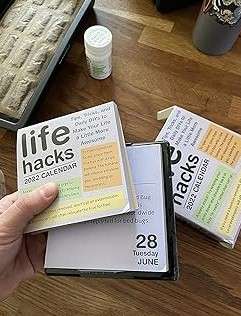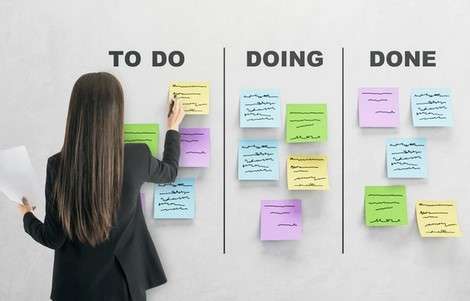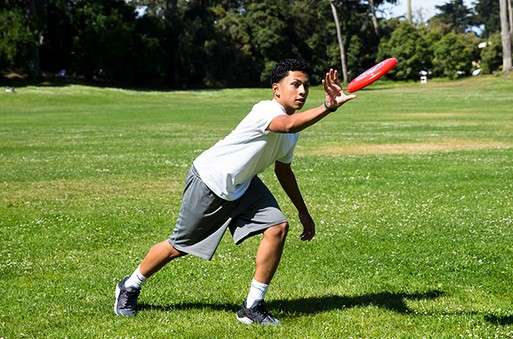Navigating the turbulent seas of adolescence can feel like a never-ending juggling act. The teenage years are undeniably difficult terrain, from the demands of school to the whirlwind of extracurriculars and social obligations.
However, the road to simplifying life does not have to be difficult. Here, we reveal 11 life hacks that have been painstakingly designed to make life not just bearable, but genuinely enjoyable for teenagers.
1. Develop a Strategic Task List

Organization is your greatest ally in the intricate dance of adolescent life. Begin by creating a comprehensive list of tasks that includes everything from academic assignments to household chores and social obligations.
Once assembled, prioritize these tasks, focusing on the most important ones. This strategy keeps you on track and prevents anything from falling through the cracks.
2. Master the Art of Breaks

The pressure to constantly perform in the fast-paced world of adolescence can be overwhelming. Take breaks as a secret weapon. These interludes provide the necessary mental reset to maintain focus and energy.
These brief breaks will rejuvenate your mind and prevent burnout, whether it’s a leisurely stroll, a dose of laughter from a funny video, or a power nap.
3. Use Calendars to Your Advantage

A well-kept calendar is an indispensable tool in the arsenal of a savvy teen. A calendar, whether physical or digital, serves as a compass, guiding you through the maze of deadlines and engagements. You can easily stay organized and on top of your commitments by relying on this visual aid.
4. Break Difficult Tasks Down

Confronting a massive task can cause anxiety. What is the antidote? Divide it into bite-sized, manageable portions. This not only makes the task more manageable, but it also improves focus by directing attention to smaller, more manageable goals.
5. Make Time for Pleasure

Making time for fun in the midst of the chaos is critical. Schedule time for enjoyable activities, such as gaming, nature walks, or movie nights. Putting your happiness first leads to a more balanced and fulfilling life.
6. Make restful nights a priority.

Resisting the allure of late-night adventures in exchange for a good night’s sleep is a game changer. With a minimum of 8 hours of sleep each night, you give yourself the energy to face the challenges of the day.
7. Move to energize yourself.

Physical activity isn’t just for athletes; it’s also a valuable tool for teenagers. Include daily exercise, whether it’s a brisk walk or participation in a sport. Exercise not only energizes the body but also the mind, improving focus and energy levels.
8. Choose Your Foods Wisely

A healthy diet is essential for a happy adolescent life. Choose a balanced diet high in fruits and vegetables while limiting your intake of processed foods. Staying hydrated with plenty of water is also essential for long-term energy.
9. Understand the Art of Organization

A clutter-free environment promotes a clutter-free mind. Organize your living space, especially your study area. To streamline your workflow and reduce distractions, designate specific areas for books and notes.
10. Goals will help you chart your course.

Setting short-term and long-term goals propels you forward with purpose. Goals serve as beacons, guiding your efforts and keeping you on track in the midst of adolescent chaos.
11. Seek Help When Needed

Recognizing when the load becomes too heavy requires strength. When life feels overwhelming, don’t be afraid to seek help from friends, family, or teachers. Asking for help demonstrates strength, not weakness.
Life as a teen can be difficult, but armed with these 11 life hacks, you can not only survive, but thrive. These strategies will help you navigate the teenage maze, from meticulous list-making to embracing moments of joy. Take these hacks for a test drive and watch as your life transforms from manageable to gratifying.
How can I effectively manage my time and balance schoolwork, extracurricular activities, and social life?
Balancing the demands of school, extracurricular activities, and a social life may appear to be an impossible task, but with a strategic approach, you can effectively manage your time and thrive in all aspects of your life.
Set priorities and make plans:
Begin by listing your most important responsibilities. What are the most important school assignments and deadlines? Which extracurricular activities are most important to you? Make time for these priorities before tackling less important commitments.
Make a Schedule:
Create a weekly schedule that includes time slots set aside for studying, attending classes, participating in extracurricular activities, and socializing. Having a visual representation of your time commitments allows you to see where you can make changes.
Set attainable goals:
While it is important to aim high, it is also important to set realistic and achievable goals. Divide larger tasks into smaller, more manageable steps. This not only makes your workload more manageable, but it also provides you with a sense of accomplishment along the way.
How to Say No:
Recognize your limits and be prepared to decline additional commitments when necessary. Overburdening yourself with too many responsibilities can result in burnout and a reduction in the quality of your work.
Use Time Management Software:
Make use of technology to your advantage. Consider using apps or tools to help you track your tasks, set reminders, and effectively manage your time. This can help you to streamline your workflow and reduce the chances of forgetting important commitments.
Establish Limits:
Set clear boundaries between your academic and social lives. When it comes time to study, concentrate solely on your work. Similarly, when participating in social activities, stay present and avoid distractions. This ensures that you make the most of every opportunity.
Accept Flexibility:
Recognize that unexpected events or schedule changes may occur. Be adaptable and have backup plans in place. This adaptability will assist you in navigating unexpected challenges without jeopardizing your overall balance.
Self-Care Is Important:
Don’t neglect your health. Make time for relaxation, exercise, and personal interests. Taking care of your mental and physical health boosts your productivity and overall life satisfaction.
Seek Assistance:
If you’re having trouble managing everything, don’t be afraid to seek help from teachers, mentors, or peers. They may provide useful insights or resources to assist you in navigating challenges more effectively.
Consider and Adjust:
Reflect on your time management strategies on a regular basis. Examine what works well and what could be improved. Adjust your approach as needed to maintain a healthy balance of academics, extracurriculars, and social life.
What are some healthy and quick breakfast ideas for busy school mornings?
Mornings can be hectic, especially during the school year. But don’t worry, a nutritious breakfast does not have to be sacrificed for the sake of time. Here are some delicious and quick breakfast ideas to get you fueled up and ready to take on the day:
Overnight Oatmeal Pudding:
The night before, combine rolled oats, your favorite yogurt, and a medley of fresh berries in a jar. You’ll wake up to a delectable parfait that’s both nutritious and time-saving.
Avocado Toast with a Difference:
Add a sprinkle of chia seeds or red pepper flakes to your classic avocado toast. Avocado’s creamy texture combined with the crunch of whole-grain toast creates a filling breakfast in minutes.
Smoothie Bowl Madness:
For a refreshing and customizable smoothie bowl, combine your favorite fruits, a handful of greens, and a dollop of Greek yogurt. To add flavor and texture, sprinkle with granola, nuts, or seeds.
Roll-Ups with Peanut Butter and Bananas:
Spread peanut butter on a whole-grain tortilla, then roll it up with banana slices. This portable treat is not only quick to make, but it is also a great source of energy to get your day started.
Cups of Eggs:
Make egg muffin cups by whisking eggs and placing them in a muffin tin with your favorite vegetables and cheese. Bake them the night before and you’ll have a protein-rich breakfast ready in seconds.
Parfait of Greek Yogurt with Nuts and Honey:
For a protein-rich breakfast that also satisfies your sweet tooth, layer Greek yogurt with crunchy nuts and a drizzle of honey. It’s a delectable combination of flavors and textures.
Potions for Chia Seed Pudding:
The night before, combine chia seeds with your preferred milk and leave them to work their magic overnight. Top the pudding with sliced fruits or nuts in the morning for a nutritious and indulgent treat.
Berries on Whole Grain Waffles:
Choose whole-grain waffles with a handful of fresh berries. This quick and tasty breakfast contains a filling combination of carbohydrates and antioxidants to keep you going.
Power Bowl with Cottage Cheese:
Combine cottage cheese, diced fruits, cinnamon, and honey for a protein-packed and flavorful bowl that takes only minutes to prepare.
Breakfast Burrito Blowout:
Scrambled eggs, black beans, diced tomatoes, and salsa on a whole-grain tortilla. Roll it up for a filling and portable breakfast that you can eat on the go.
These breakfast ideas are not only simple to prepare, but they also ensure that you start your school day with the right combination of nutrients and flavors. Cheers to quick and nutritious breakfasts!
What are some helpful strategies for reducing stress and staying calm during exams and important tests?
Navigating the high-stakes world of exams and important tests can be a stressful journey, but don’t worry—calm waters await. Here are some fine-tuned strategies for not only surviving but also thriving during these critical times:
Mindful Breathing: In the midst of exam stress, the simple act of conscious breathing can be overlooked. Include mindful breathing exercises in your daily routine. Deep, slow breaths can help to calm your nervous system and reset it.
Strategic Time Management: The ticking clock can be stressful, but mastering time management is like riding a charging stallion. Divide your study sessions into focused intervals, with brief breaks in between to avoid burnout. This not only improves concentration but also reduces stress.
Visualize Success: Imagine yourself answering questions confidently and acing the exam. Visualization is a powerful tool for increasing self-confidence and cultivating a positive mindset. Consider success, and success may find you.
Healthy Lifestyle Habits: Your mind performs best when your body is in peak condition. Make regular exercise a priority, eat a balanced diet, and get enough sleep. These lifestyle choices lay a solid foundation for dealing with stress.
Familiarity breeds confidence, so practice, practice, practice. To simulate the exam environment, use practice exams and past papers. This not only improves your skills but also reduces the element of surprise, which reduces anxiety.
Strategic Study Environment: Create a focus-friendly study environment. Reduce distractions, improve lighting, and surround yourself with affirmations. A well-organized and comfortable environment can improve your concentration and mental clarity.
Use Stress-Relieving Techniques: Find stress-relief techniques that work for you. Listening to soothing music, practicing yoga, or engaging in a favorite hobby can all be effective stress relievers.
Break It Down: Instead of viewing the entire syllabus as an impassable mountain, divide it into manageable chunks. Tackling smaller portions of the workload at a time makes the workload appear less overwhelming and provides a sense of accomplishment along the way.
Seek Help: Don’t be afraid to reach out to your support network. Discuss your worries with friends, family, or a mentor. Occasionally, expressing your concerns aloud can provide valuable perspective and emotional relief.
Post-Exam Rituals: After the exam, plan a reward or a relaxing activity. Having something to look forward to can keep you motivated during difficult study sessions and provide a well-deserved break once the exam is completed.
Remember that it’s not just about passing exams; it’s about thriving in the face of adversity. With these techniques at your disposal, you’re no longer just a student; you’re a stress-busting, exam-conquering maestro.
How can I improve my study habits and make the most out of my study sessions?
Increasing the effectiveness of your study sessions requires a strategic blend of organization, motivation, and personalized techniques. Here’s a detailed guide to help you optimize your study routine and maximize your academic potential:
Set specific objectives:
Establish goals for each study session. Clear goals provide direction and purpose to your study time, whether it’s mastering a specific topic or completing a set number of assignments.
Make a Schedule:
Create a study schedule that is both realistic and consistent. This not only allows you to set aside time for studying, but it also establishes a routine that improves focus and productivity over time.
Establish a Dedicated Study Area:
Choose a study location that is quiet, well-lit, and comfortable. This signals to your brain that it’s time to focus, reducing distractions and creating an environment conducive to learning.
Active Learning Methods:
Active learning can be accomplished by summarizing information in your own words, teaching concepts to others, or creating flashcards. When compared to passive learning methods, this approach improves understanding and retention.
Study Material Variety:
To avoid boredom, mix up your study materials. To keep your mind engaged and learning enjoyable, combine textbooks, online resources, videos, and interactive platforms.
Taking Effective Notes:
Create a system for taking notes that works for you. Whether using traditional handwritten notes or digital tools, organize information so that it can be easily reviewed later.
Regular Rest Periods:
Break up your study sessions into manageable chunks and take short breaks to avoid burnout. This method aids concentration and prevents information overload.
Healthy Way of Life:
Make sleep, exercise, and a healthy diet a priority. A healthy lifestyle improves cognitive function, memory, and academic performance.
Make Use of Technology Wisely:
Make use of technology to your advantage. Use productivity apps, online resources, and study aids that are appropriate for your learning style. However, monitor your screen time and make sure it helps rather than hinders your concentration.
Examine and Reflect:
Review your notes, assignments, and any feedback received on a regular basis. Examine your progress, identify areas for improvement, and modify your study strategies as needed.
Maintain Your Motivation:
Link your studies to your long-term objectives. To stay motivated during difficult times, celebrate small victories and remind yourself of the bigger picture.
Seek Assistance:
When assistance is required, do not be afraid to seek it. Join study groups, consult with teachers, or use online forums to clear up confusion and gain new perspectives on difficult topics.
By incorporating these strategies into your study routine, you will not only improve your academic performance, but you will also develop lifelong learning skills that will benefit you beyond the classroom. Remember that consistency and adaptability are essential as you fine-tune your study habits to fit your individual learning style.
What are some practical tips for staying organized and keeping track of assignments, deadlines, and important events?
Mastering the art of organization is a game changer in the fast-paced rhythm of modern life. Whether you’re juggling assignments, deadlines, or important events, here are some useful and innovative tips to keep you on track.
Accept Digital Tools:
Dive into the vast world of productivity apps and tools. Consider using project management apps such as Trello or Asana to create task boards, set deadlines, and collaborate more effectively. For scheduling and reminders, calendar apps like Google Calendar or Microsoft Outlook can be useful.
Make a Master Calendar:
Set aside time each week to create a master schedule. Include all of your assignments, deadlines, and events in one place. This will provide you with a comprehensive view of your upcoming commitments and assist you in allocating time efficiently.
Prioritize and divide tasks:
Not every task is created equal. Sort your tasks according to their urgency and importance. Larger tasks should be broken down into smaller, more manageable steps. This method not only makes the workload appear less daunting, but it also allows you to concentrate on one task at a time.
Use Color Coding:
Color coding isn’t just for looks; it’s also an effective organizational tool. Assign different colors to various types of tasks or categories. This visual aid can help you focus on specific areas of your schedule and improve overall clarity.
Set attainable goals:
Be honest with yourself about your ability to complete tasks in a given time frame. Setting realistic goals keeps you from becoming overwhelmed and helps you maintain a healthy work-life balance. To stay motivated, celebrate small victories.
Review and adjust on a regular basis:
Life is dynamic, and your organizational system should be as well. Set aside time on a regular basis to go over your schedule, update deadlines, and rearrange priorities. Staying on top of unexpected changes requires flexibility.
Remove Digital Clutter:
Digital clutter, like physical clutter, can be distracting. Declutter your digital space on a regular basis by organizing files and deleting unnecessary emails. A clean digital workspace promotes a focused and clear mindset.
Create Daily Routines:
Efficiency breeds consistency. Establishing daily routines aids in the creation of order and predictability. To maintain a balanced and structured day, schedule specific times for work, breaks, and personal activities.
Make Good Use of Reminders:
Use the reminder features on your devices wisely. Make a note of important deadlines, meetings, or even short breaks. This will assist you in staying on track and effectively managing your time.
Include Mindfulness Practices:
Make mindfulness a part of your daily routine. Meditation and deep breathing exercises, for example, can improve your focus and reduce stress, resulting in a more organized and composed approach to tasks.
By incorporating these suggestions into your daily routine, you will not only stay organized, but you will also find a rhythm that maximizes your productivity while minimizing stress. Remember that the key is to find a system that works specifically for you.

